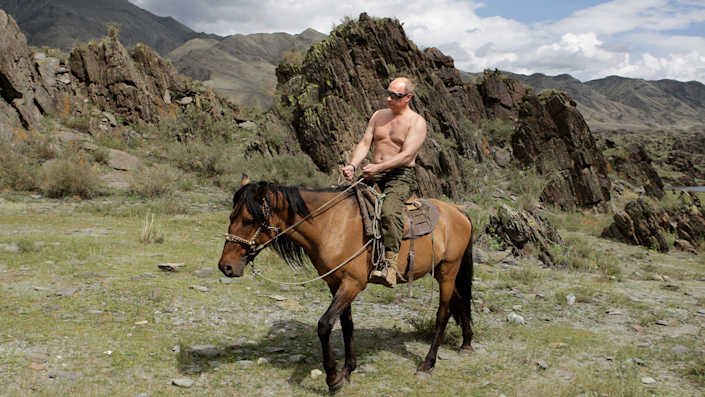Russian President Vladimir Putin exhibits characteristics of a psychopath who can only be deterred by a “credible threat of force,” a Cornell University forensic psychiatrist told Fox News Digital.
Dr. Ziv Cohen said it would be a violation of his profession’s ethical rules to diagnose a public figure who he has not personally examined, but he can assess Putin’s actions in the framework of a personality type.
He said Putin scores high in the three categories associated with the mental disorder of psychopathy: aggression, narcissism and lack of empathy, which have been on full display in autocratic leader’s invasion of Ukraine.
“He’s not crazy,” Cohen said. “He’s charming, calculated and manipulative. With psychopaths, you cannot develop a common understanding. You cannot have agreements with them. They really only respond to superior power, to a credible threat of force.”
RUSSIA LAUNCHES LARGEST AIR ASSAULT OF UKRAINE INVASION: LIVE UPDATES
Many commentators have pointed to Putin raising the country’s nuclear force status to “special combat readiness” as a sign of instability, and a growing number of U.S. and European officials have questioned Putin’s mental health.
Putin has a history of getting into armed conflicts with little concern for civilian casualties. He used heavy force to put down separatist uprisings in Chechnya, leveling the city of Grozny in 2000 and installing a proxy ruler.
In Syria, he helped President Bashar Al-Assad retain power amid a civil uprising in 2011 by destroying civilian-heavy swathes — even using penetration bombs on underground hospitals.
A few years later, Putin invaded his neighbor to the south, Georgia, a country that like Ukraine was once part of the Soviet Union.
“He looks at people as tools to achieve his aims,” Cohen told Fox News Digital. He compared him to Joseph Stalin, Adolf Hitler and Mao Zedong in terms of brutality and the way their personalities have driven their country’s entire foreign policies.
UKRAINIAN PORT CITY MAYOR REPORTS MASS CASUALTIES
“Putin identifies himself as inextricable from Russia and its legacy,” Cohen said. “That’s very grandiose sense of self. He has dominated his whole country, even against the interests of his own people.”
He said that Putin is going to look at his adversaries and assess their strength, and in Biden he would have smelled weakness.
“I don’t think it was helpful when Biden went on TV and said we’re not going to put soldiers in Ukraine,” he explained. “We can have strategic ambiguity. We don’t have to say exactly what we’re going to do or not do.”
Rebekah Koffler, a former Defense Intelligence Agency officer for Russia and the author of “Putin’s Playbook: Russia’s Secret Plan to Defeat America,” disagreed with Cohen’s assessment.
She said that other psychiatrists have evaluated Putin’s mental stability and concluded he is a typical authoritarian with no anomalies.
“Putin’s logic is not American or Western,” said Koffler, who was born and raised in Russia. “His actions reflect Russian cultural norms and standards of behavior, she explained.
“Russia’s way of war is very different than the Western style,” she said. “They do not pay much attention to civilian deaths but prioritize the achievement of the mission i.e. elimination of the adversary by any means necessary.”
She called the similarities between Putin and Stalin or Hitler exaggerated. Unlike Joseph Stalin, Putin has not murdered, starved to death or sent to the gulag millions of Russians.
His rule, she said, has been far less brutal than that of Vladimir Ilyich Lenin or even the czars.
“Putin has, overall, improved Russia’s wellbeing as a country and its stature on the world stage, which is what the Russian people wanted,” she added. “Russian national identity is wrapped up in the idea of exceptionalism and Russia being a strong power. Putin has achieved that.”




